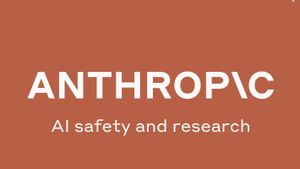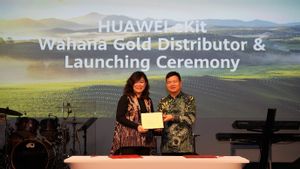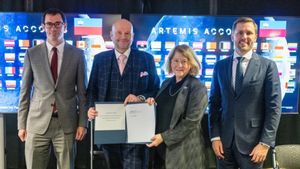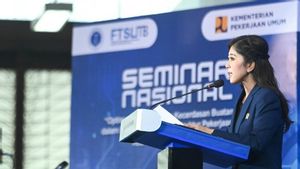JAKARTA - Isomorphic Labs, a spin-off focused on drug discovery from Google's research and intelligence development division, DeepMind, announced a strategic partnership with two giant pharmaceutical companies, EliTOR and Novartis, to implement artificial intelligence in the discovery of new drugs to treat disease.
These two deals have a combined value of around US$3 billion (Rp46 trillion). Isomorphic will receive US$45 million in advance from Elimble and a potential of up to US$1.7 billion based on the achievements of various stages of performance, without including royalties. Novartis, meanwhile, will pay US$37.5 million upfront and also finance "choice" research costs and up to US$1.2 billion (one more time without royalties) as performance-based incentives over time.
"We are very pleased to establish this partnership and implement our exclusive technology platform," said Demis Hassabis, founder of DeepMind and CEO of Isomorphic, as quoted in a press release. "Our focus is on advancing an innovative drug design approach and appreciating cutting-edge sciences makes this partnership very interesting."
Marshall, president of biomedical research at Novartis, added in a statement: "A state-of-the-art artificial intelligence technology... has the potential to change the way we find new drugs and accelerate our ability to provide life-changing drugs for patients. This collaboration takes advantage of the unique powers of our company, from artificial intelligence and data science to medicine chemistry and in-depth expertise in disease."
SEE ALSO:
Isomorphic, launched by Hassabis in 2021 under the parent company Alphabet, relies on AlphaFold 2 artificial intelligence technology from DeepMind that can be used to predict protein structures in the human body. By revealing this structure, it is hoped that researchers can identify new target pathways to develop drugs against disease.
This technology is not yet perfect. A recent article in the journal Nature shows that AlphaFold sometimes makes a clear mistake and in many cases it is more beneficial as a "hypothesical generator" than a substitute for experimental data. However, the scale at which this model can produce protein predictions is quite accurate beyond most previous methods.
Researchers recently used AlphaFold to design and synthesize potential drugs to treat hepatoselular carcinoma, the most common type of primary liver cancer. And DeepMind collaborates with Drugs for Negative Diseases initiative, a Geneva-based nonprofit pharmaceutical organization, to implement AlphaFold in formulating therapies for Chagas and Leishmaniasis, the world's two deadliest diseases.
The latest version of AlphaFold can produce predictions for nearly all molecules in the Protein Data Bank, the world's largest biological molecular database, announced by DeepMind in October. The model can also accurately predict ligand structures - molecules associated with "receptor" proteins and cause changes in the way cells communicate - as well as nucleic acids (molecules containing key genetic information) and post-translation modifications (chemical changes that occur after proteins are made).
Currently, Isomorphic is implementing the latest AlphaFold model - co-designed with DeepMind - on therapeutic drug designs, helping characterise various types of molecular structures important for disease treatment.
Isomorphic is now faced with pressure to start making profits. In 2021, the company recorded a loss ofung2.4 million (~$3 million) for increasing employee recruitment ahead of the opening of the second branch office in Lausanne, Switzerland.
The English, Chinese, Japanese, Arabic, and French versions are automatically generated by the AI. So there may still be inaccuracies in translating, please always see Indonesian as our main language. (system supported by DigitalSiber.id)


















